How the Federal Reserve Affects Your Mortgage and Interest Rates in 2024
Over the past two years, adjustments by the Federal Reserve have increased the average 30-year fixed mortgage rate, reaching levels that deter prospective homebuyers and slowing the housing market.
Since the previous summer, the Federal Open Market Committee (FOMC) has maintained the fed funds rate at a range of 5.25% to 5.50%. A prolonged period of higher interest rates could adversely impact homebuyers. Despite the Fed’s intention to reduce interest rates at least thrice this year to stimulate the economy, persistent inflation challenges the quick realization of this goal, keeping mortgage rates high.
The decision to cut rates hinges on the Federal Reserve’s confidence that such action won’t inadvertently fuel economic expansion and inflation. The timing and extent of any rate reductions by the Fed will largely depend on upcoming economic indicators.
What does the Federal Reserve do?
Established by the Federal Reserve Act of 1913, the Fed’s primary mission is to craft and administer U.S. monetary policy to stabilize the economic landscape. It comprises 12 regional banks and operates under the guidance of a Board of Governors, who are integral members of the Federal Open Market Committee (FOMC). The FOMC is responsible for setting the benchmark federal funds rate, influencing how banks and other mortgage lenders set interest rates for various loans, including fixed and adjustable-rate mortgages.
In response to inflationary pressures, the Fed employs interest rate hikes to temper borrowing enthusiasm and mitigate economic growth. Such increases typically lead banks to raise rates on consumer borrowing, directly affecting home loan rates, including those for 30-year mortgages and fixed-rate mortgages, making it more expensive for consumers to borrow money to buy a home.
Make Your Offer Stand Out!
Get a Verified Approval with Fairway Independent Mortgage today.
Start My Approval
How does the federal funds rate affect mortgage interest rates?
While the Fed’s policies primarily target short-term economic activities, they indirectly affect mortgage rates. Mortgages are generally linked to long-term benchmarks, such as 10-year Treasury bonds, rather than directly to the federal funds rate. However, these policy adjustments can influence the cost of borrowing for lenders, which in turn may lead to higher interest rates for consumers seeking to buy a home or take out a mortgage.
Factors such as your income, credit history, credit score, down payment size, and the type of mortgage (e.g., 30-year fixed-rate mortgage) continue to determine the rates offered by mortgage lenders.
What factors affect mortgage rates?
Mortgage rates fluctuate due to many factors mirroring the dynamic nature of home prices: supply and demand forces, inflation, and the employment rate play significant roles. Moreover, the interest rate you’re eligible for hinges on personal criteria, such as your credit score and the loan’s specifics.
Economic Elements Impacting Mortgage Rates
Federal Reserve Adjustments: The Federal Reserve’s policy maneuvers, particularly changes to the federal funds target rate, ripple through the economy, indirectly influencing mortgage rates. The federal funds rate dictates the cost for banks to borrow funds, which in turn, impacts the rates banks charge consumers. While the Federal Reserve doesn’t directly set mortgage rates, its policy decisions are a crucial factor that affects how lenders set their rates.
Inflation’s Impact: High inflation typically heralds higher interest rates. Inflation erodes purchasing power, prompting lenders to hike interest rates on loans, ensuring their returns remain robust. This correlation underscores how inflation and mortgage rates are intertwined, with lenders adjusting rates to counterbalance inflation’s effects and secure profits.
Supply and Demand: The demand for mortgages directly influences interest rates. High demand prompts lenders to increase rates, given their finite lending capital. Conversely, lower demand leads to slashed rates to attract borrowers, illustrating how supply and demand pressures also influence mortgage rates.
The Bond Market Connection: Lenders often align fixed interest rates, such as those for 30-year fixed-rate mortgages, with bond yields. Mortgage bonds or mortgage-backed securities, intertwined with the 10-year Treasury rates, affect mortgage rates. High bond yields reduce a bond’s market value, pushing mortgage rates up, signifying the bond market’s role in setting mortgage interest rates.
Economic Indicators: The broader economic landscape, including employment trends and factors affecting investor confidence and consumer spending, shapes mortgage rates. A robust jobs report or a thriving economy might signal heightened housing demand, potentially elevating mortgage rates. Conversely, economic downturns and higher unemployment rates generally correlate with lower mortgage rates.
Personal Factors Determining Your Mortgage Rate
Your mortgage interest rate is also determined by several personal factors, including:
- Your credit score.
- The property’s location.
- The purchase price.
- Your down payment amount.
- The loan amount and type.
- The term and type of interest rate.
When will the Fed start cutting interest rates?
Housing market experts anticipate a gradual decline in interest rates in the months ahead. Despite positive signs from the economic data, the Federal Reserve is expected to hold off on reducing rates until inflation consistently aligns with its 2% target rate. The cautious approach to rate decreases reflects an understanding of how the federal funds rate affects mortgage rates and, by extension, the broader housing market.
Remaining Fed Meetings in 2024
- April 30-May 1
- June 11-12
- July 30-31
- September 17-18
- November 6-7
- December 17-18
Most analysts agree that any movement to lower interest rates is more likely in the latter half of the year. Consequently, it’s unrealistic to expect average mortgage rates to dip below 6% soon. “The process of cutting rates is expected to be gradual,” reflecting the Fed’s cautious stance towards inflation and economic growth.
Get Approved To Refinance.
See recommended refinance options and customize them to fit your budget.
Start My Approval
Is now a good time to buy a home or shop for a mortgage?
The best strategy for securing a favorable interest rate involves maintaining a strong credit profile, minimizing debt, maximizing your down payment, and comparing offers from multiple lenders. When evaluating offers, it’s also important to consider the Annual Percentage Rate (APR), which encompasses both the interest rate and any lender fees, to understand the total cost of the loan.
The Bottom Line: Understanding What Impacts Mortgage Rates
When the Federal Reserve adjusts its benchmark interest rate, it sets a chain of events that indirectly influences mortgage rates. This decision, whether to hold steady or to alter rates, doesn’t instantly transform the landscape for home loan rates. Instead, these rates adjust over time, influenced by factors such as inflation, investor expectations, and the overall economic climate. The prevailing view among experts is that we’re likely to see a gradual decline in mortgage rates over the course of 2024.
Understanding that mortgage rates tend to reflect broader economic trends rather than immediate changes by the Fed can help you navigate your home buying or refinancing decisions more effectively. If you’re contemplating a new home purchase or refinancing your existing mortgage, exploring your options online is a great starting point to determine if you can secure a rate that aligns with your financial goals. secure a rate that aligns with your financial goals.



